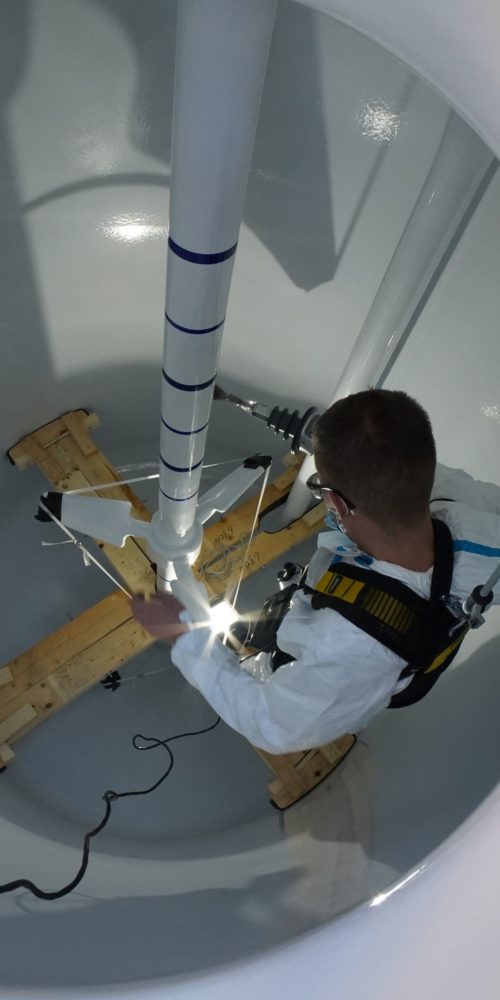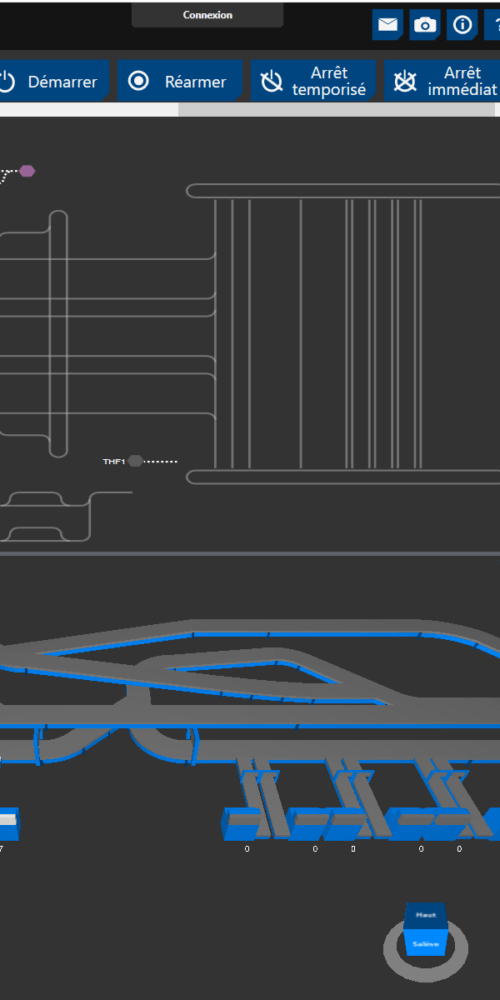We can assist you in your construction, renovation or modelling project, covering everything from the definition of your needs to monitoring and maintenance.
Project management
We strive for your complete satisfaction, which is why our project management is based on a precise methodology, adaptability to the context and innovative solutions.
A comprehensive engineering offer
We aim to meet your needs and requirements sustainably, quickly and pragmatically through global engineering solutions. We therefore propose you a unique offer with elevated added value.
A co-construction method
Our co-construction approach means that we work with you hand in hand. At SP Groups, team spirit is more than just an expression. It is first and foremost an approach that brings together a plurality of actors in the development and implementation of a project in order to move towards transformation.
More specifically, we take the time to get to know your working methods, your processes, your organisation, your aspirations and your values. The ultimate goal is to exchange ideas, look at things from different angles and call for creativity.
This process is rigorous yet totally transparent. Another way of doing this is through workshops or joint working meetings, consultation workshops, site visits and even virtual tools! There are so many solutions to gather valuable information and take your uses into consideration. With us, co-construction is a unique method that promotes everyone's well-being and performance.
A team tailored to your project
The pharmaceuticals, biotech and fine chemicals sectors are governed by very high standards and quality levels. This requires a highly structured project management and a finely-tuned organisation. When you entrust us with your project, we always start by putting together a multidisciplinary team of experts adapted to your needs and environment.
The roles are distributed around the project leader so that everyone can get involved and be a driving force behind the project. The buzzword in this organisation? Communication, whether between you and the team or between all team members.
A multi-competence approach
Project management requires knowledge in your industry and beyond. It also requires profiles with sharp expertise, at the cutting edge of the latest practices. It requires multi-tasking, mastering as much information as possible and learning to decipher the language of other trades.
We have gained these skills through time and experience. As a result, we are now one step ahead: our cross-cutting (multi-level) and global (multi-type) approach yields a unique collective skill set!
Tailor-made services
Since each project is unique, we start by identifying the necessary skills and possible problems. We then structure our approach around hierarchical steps:
- Existing situation audit
- Conceptual design or feasibility (upstream) to examine the feasibility of the project
- Full execution report explaining your needs and timing
- Basic Design or Basic Preliminary Design (BPD) explaining the method and dimensioning of the project
- Detailed Design or Detailed Preliminary Design (DPD), a more detailed stage with a list of all the elements that make up your project (pipe type to lay, reactor type to install, location of floor, spots to add partitions, etc.)
- Drafting of specifications, calls for tenders, requests for proposals and invitations to tender
- Procurement / purchase of materials from companies commissioned according to specifications (electricity, ventilation, etc.)
- Acceptance and monitoring of execution up to final delivery
- Commissioning
- We put together a team with 7 to 10 different engineers for each project, depending on the needs. These engineers lend their skills to ensure that the overall study is mastered.
Depending on the nature of the project, automation/IT can intervene in parallel as soon as the feasibility study is completed.
You validate every step of the process yourself. With each new step we take, the team gets a little stronger: we go from 5 people for the concept design phase, to up to 10 to 20 people for the BPD, before multiplying our staff by 10 again for the execution phase.
An exemplary qualification procedure
We carry out over 140 projects every year. They can vary from 3 months to 2 years depending on the complexity of the solution to be implemented. On average, facilities are operational after 6 months, after an essential certification stage to ensure safety.
Whether for the pharmaceutical, biotech or fine chemicals sector, we apply the “V” cycle. This organisational model is characterised by a top-down flow of activity from design to implementation, and a bottom-up flow to check the quality of the facilities.
The phases are:
- Design
- Study: different stages with iterative processes
- Validation
- Partner consultation and construction
- IQ (Installation Qualification): control of the installation in relation to the specifications
- OQ (Operational Qualification): facility test and verification
- PQ (Process Qualification): final validation test
- Not forgetting the project documentation delivered at the end of each phase of the project, but above all accessible at any time during the project via the TEAMS collaborative tool.
We naturally adapt to the requirements of each sector to secure facility validation. In the pharmaceutical sector, where there are numerous regulatory constraints, we scrupulously adhere to the standards and legislation of each country. Upon completion of the Process Qualification phase, we draw up a technical file adapted to the operator and maintenance department.
Are you looking to commission us to manage a project?
Let's talk about it!
Our business cases
 Tank Revamping
Tank Revamping
 LoRaWAN IoT platform
LoRaWAN IoT platform
LoRaWAN IoT platform
 Clean Room
Clean Room
Clean Room
 Geneva airport
Geneva airport

